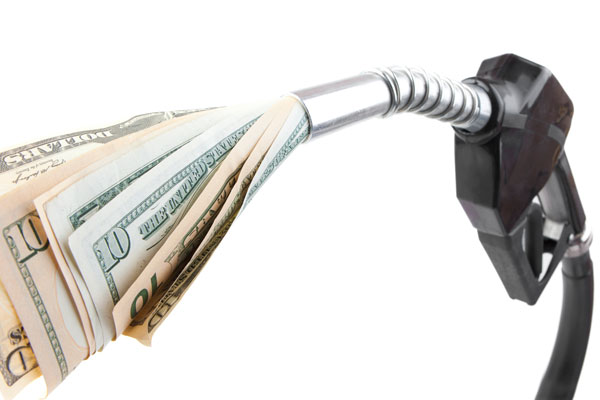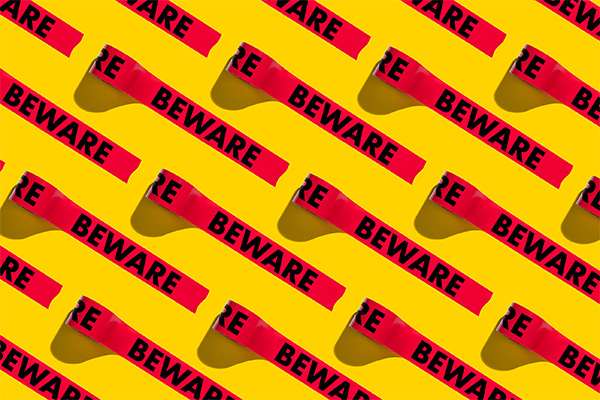Is fuel fraud pumping your profits down the drain?

Article Highlights:
- Why fuel fraud is a threat to the bottom line.
- 4 tips for stopping fuel fraud before it happens.
How much does fuel cost your dealership? I mean really cost?
What if I told you the amount on your books could be significantly higher than it should be by tens of thousands annually?
Unfortunately, fuel fraud is a real problem. According to the Association of Certified Fraud Examiners, 89 percent of occupational theft is misuse of assets — like fuel.
Imagine one dealer’s shock when he learned an employee forged nearly 400 purchase orders (POs) to buy $12,000 of gas, putting between $2,500 and $5,000 of fuel in his own and friends and family’s vehicles over only two months.
If you find your dealership in a similar situation, reclaiming all your losses isn’t much more likely than recovering gas a vehicle has already consumed, as only 15 percent of fraud victims recover their losses.
To protect your bottom line, follow these guidelines to stop fuel fraud before it happens:
- Control the Fuel Purchasing Process
A clearly defined fuel purchasing process is critical to tracking fuel use. This process could include a PO system, fuel cards, or on-site fueling.
There are benefits and drawbacks to each method: POs provide an audit trail of purchases, but not all systems are designed specifically to track fuel expenditures at a granular level. Fuel cards are convenient, but it’s difficult to set limits on authorized purchases. On-site fueling is great for tracking your overall fuel consumption and spending, but it’s a big commitment requiring you to install tanks and pumps, coordinate fuel deliveries, and implement fuel management software.
Whatever process you choose, it should allow you to:
- Customize departments and reason codes for fuel purchases.
- Authorize either a complete fill-up or purchase for a specific dollar amount.
- Pull reports on fueling history.
Without these capabilities, controlling fuel use is all but impossible.
- Hold Employees Accountable
All employees — regardless of position or tenure — need to be held accountable for how they use dealership funds. If you simply hand an employee a fuel card without checks and balances, it’s difficult to ensure they’re purchasing the authorized amount of gas, especially if they don’t turn in receipts.
Instead, require a manager’s authorization for every purchase, with a copy of that approval for your records. For example, an employee could have the manager sign a PO. After purchasing fuel, the employee would turn in a copy of the PO along with the gas receipt for your records.
- Make It Easier to Spot Fraud
Do you have time to painstakingly check receipts against credit card statements and then validate the reason for every purchase? Or hound managers to account for their department’s fuel activity? Not many people do, which is why fraud often slips under the radar.
To easily detect suspicious activity, you’ll need a way to pull reports of fuel expenditures by department, purchase reason, stock number, requester, or manager.
If you’re using POs, automatically printing the fuel purchase history for a particular stock number directly on the PO allows managers to spot fuel fraud at a glance. For example, if a manager gets a PO for a complete fill-up and sees that the vehicle was tanked up three days ago, he’ll know to dig deeper into the situation before authorizing the purchase.
- Simplify Account Reconciliation
If closing out accounts is time-consuming and cumbersome, your accounting team is more likely to overlook discrepancies or forgo the process completely. Having a system that can detect errors such as mismatched dollar amounts, missing receipts, or duplicate entries allows you to ensure all posted expenses are accurate while reducing keystrokes and leaving more time for payroll and month-end.
With a system designed to track your monthly gas expenses, you can hold employees accountable, quickly spot fraud, and spend less time reconciling fuel purchases. Don’t let fuel fraud pump your dealership’s profits down the drain.
Related Articles:

Seeing Clearly: Reporting That Shows You the Full Picture
Reporting is essential to a profitable business, but you might be seeing a partial picture. Standing between you and the full picture: your reporting tool.

Quarterbacking Your Deals: The Strategic Advantage of eContracting
As the college football season approaches, dealerships can gain valuable insights from the strategic capabilities of college football teams. Just as quarterbacks must think on…

Beware and Prepare: What You Can Learn from the “Ides of…
For Julius Caesar, listening to a warning was a matter of life or death. When it comes to keeping your business healthy and profitable, staying…

Sleighing the Reporting Game: Digitizing Your Business Office
The enchantment of the holiday season is undeniable. As the living room fireplace crackles with life, its warmth greets you with a cozy embrace. Fresh…















